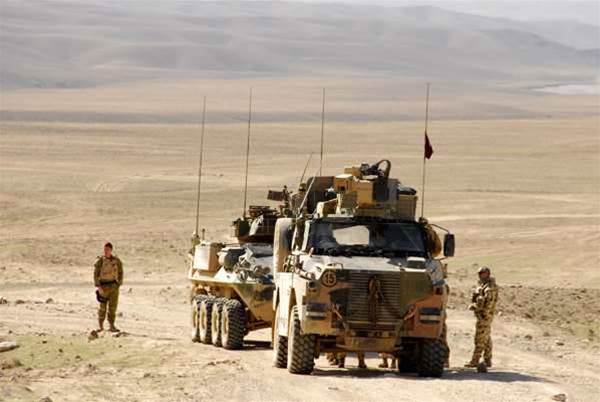The Department of Defence has released a fresh set of recommendations under freedom of information laws that detail further "efficiencies" that can be driven out of existing ICT reform programs.

The recommendations were included in an audit of the 2008 defence budget [PDF] conducted by McKinsey & Company.
The final report, known as the Pappas Review after its principal writer George Pappas, was handed to the Government in April but only made public yesterday.
Among its recommendations was "a substantially greater focus on efficiency as a cornerstone" of a revised Defence ICT strategy.
The review also called for "a tightening of governance and control as a precursor to launching a major reform program."
"Some progress has been made in this area (for example, establishing the CIO as the single authority at a high level); however, the model is still highly dispersed," the report said.
It also called on Defence to establish a three-to-five year vision for ICT's end-state aspirations... "for efficiency gains based on simplification, consolidation and demand management."
That included creating "a lean IT model for dramatically driving down capital and operating expenses by consolidating and simplifying hardware, applications and networking environments", the report said.
The lean model could include transferring tasks such as the manual reboot of servers and password resets from system administrators to "lower-tiered console operators" and "cross-training Unix [administrators] on all flavours (e.g. AIX, Solaris)", according to Pappas.
Apart from pursuing a leaner ICT operational model, the report recommended "establishing end-to-end management across core services such as equipment, personnel, outsourcing and facilities spend.
"Outsourcing the various elements of a service to different providers makes end-to-end accountability difficult," the report claimed.
Spending split
The Pappas review also provided a string of observations based on an extract from the Department of Defence CIO Group's ICT sourcing strategy review draft.
The group is responsible for ensuring Defence's information environment supports business and military operations.
One of the key recommendations of McKinsey was for a re-balancing of the CIO Group's ICT spending profile. About 43 percent of total Defence ICT spending flowed through the group, the review said.
"As almost 70 percent of this budget is currently spent on sustainment activity, and only nine percent on major projects, this indicates an urgent need to reprioritise spending," the report said.
"We recommend that outside of critical military-driven constraints to the contrary, the CIO Group should migrate the ICT spend profile to a more typical split - where roughly 60 percent of ICT budget is spent on sustainment, 20 percent on major projects to enable ongoing capability development and business system enablement, and the remaining 20 percent on innovation."
Operating savings
McKinsey said that based on comparisons to "similar reform programs targeting major elements of the ICT stack", Defence could expect savings of between 15 and 30 percent per year in operating costs.
That would equate to an "opportunity range" of between $138 million and $275 million, the review found.
An estimate by the CIO Group of $215 million per year in savings fell "comfortably within the range of what we have seen achieved elsewhere - with the potential for additional savings if best practice is achieved," the review said.
Videoconferencing under-used
The review also looked briefly at the potential for videoconferencing to reduce travel expenses, including what it called ‘rogue spending'.
Rogue spending was defined as "allowances or cash received by Defence personnel for travel-related expenses that is kept and not spent."
The review said Defence had "more than 180" secret and top secret videoconference facilities "in addition to many unclassified facilities (the number of which is not tracked)".
"Increasing the use of Defence's existing videoconferencing facilities, which currently have ~71 percent spare capacity, would have environmental benefits and save up to $10 million per year," the review found.


























